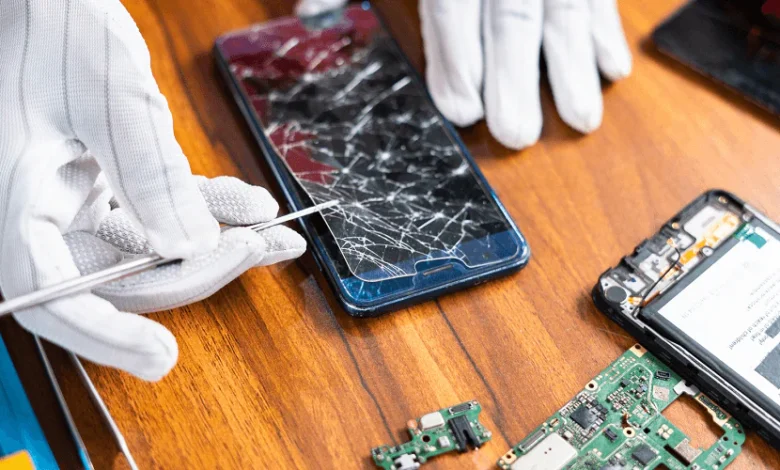
In today’s fast-paced world, phone tech has become an integral part of daily life. From sending messages and making calls to browsing the web and controlling smart devices, mobile phones have transformed the way we live and interact with technology. As advancements continue to push boundaries, it’s clear that the future of phone tech holds exciting possibilities.
The Early Days of Mobile Phones
Back in the 1980s, the very first mobile phones were large, clunky, and had limited functionality. These devices could only make calls, and even that was a luxury. The rise of 폰테크 (phone tech) in the late 20th century revolutionized communication, making mobile phones more accessible and affordable for the average person. As mobile networks expanded and technology improved, mobile phones began to shrink in size while gaining new features.
The Transition from Basic Phones to Smartphones
The introduction of smartphones was a game-changer. Gone were the days of just calling and texting. Smartphones brought the internet to your pocket, allowing users to browse, stream, and even work on the go. The key innovations that transformed the mobile industry included the introduction of touchscreens, app stores, and advanced mobile processors. This shift redefined the role of mobile phones, turning them into powerful mini-computers.
The Role of Operating Systems in Phone Tech
One of the most significant developments in mobile technology has been the evolution of operating systems. The battle between Android and iOS has been ongoing for over a decade, with each system bringing unique advantages to users. While iOS is known for its sleek design and user-friendly interface, Android offers more customization and flexibility. The choice of operating system plays a crucial role in determining the overall experience of a smartphone user.

Key Components of Modern Smartphones
At the heart of every smartphone are key components such as the processor, RAM, and display. Modern smartphones boast impressive specifications that make them faster and more efficient. For example, high-end processors like Qualcomm’s Snapdragon or Apple’s A-series chips provide exceptional performance. Meanwhile, display technologies like OLED and LCD screens deliver stunning visuals that enhance the user experience.
Camera Technology: More Than Just Taking Photos
Smartphone cameras have come a long way since their introduction. Today, phone cameras are equipped with AI-powered features that help users capture professional-quality photos. Innovations like multi-lens setups, computational photography, and advanced zoom capabilities have made smartphones the go-to device for photography enthusiasts. Whether it’s capturing a sunset or filming a 4K video, phone cameras are now more powerful than ever before.
Battery Life: How Tech Is Solving the Power Problem
Despite all the advancements in mobile technology, battery life has remained a constant challenge. However, new innovations are helping solve this issue. Fast charging technologies allow users to charge their phones in minutes, while wireless charging offers added convenience. Battery-saving modes and efficient processors are also helping extend the lifespan of a smartphone’s battery.
5G and Its Impact on Phone Tech
The introduction of 5G has been another major leap in phone tech. Offering faster download speeds and lower latency, 5G networks enable smoother streaming, quicker downloads, and better connectivity for smart devices. This technology is transforming industries like gaming, healthcare, and autonomous driving, where real-time communication is crucial. With 5G, mobile devices are poised to become even more integral to our lives.

Foldable Phones: A New Era of Design
One of the most innovative developments in recent years is the introduction of foldable phones. These devices offer users the flexibility of a larger screen without sacrificing portability. While still in their early stages, foldable phones are steadily gaining popularity. Brands like Samsung and Huawei are at the forefront of this trend, with devices that fold open into mini-tablets.
Mobile Security: Protecting Your Phone and Data
As mobile phones become more advanced, so do the security measures needed to protect them. Today, biometric technologies like fingerprint scanners, facial recognition, and iris scanners provide enhanced security for users. In addition, data encryption helps keep sensitive information safe from hackers. As we store more personal data on our phones, the importance of security cannot be overstated.
Sustainability in Mobile Tech
The rise of phone tech has also led to concerns about sustainability. The production of smartphones generates significant electronic waste (e-waste), and many manufacturers are taking steps to address this issue. Companies are now incorporating eco-friendly materials, offering recycling programs, and reducing the environmental impact of their devices. Brands like korea-mobile.kr are leading the charge by promoting sustainable practices in the mobile industry.
The Future of Phone Tech: What’s Next?
Looking ahead, the future of phone tech is filled with exciting possibilities. Artificial intelligence (AI) is expected to play a significant role, with smart assistants becoming more intuitive and integrated into daily life. Augmented reality (AR) and virtual reality (VR) technologies may also become more widespread, transforming how we interact with mobile devices.
The Influence of Phone Tech on Global Markets
Phone tech has not only reshaped individual lives but also entire industries. Mobile technology has become a driving force in the global economy, affecting industries like entertainment, healthcare, and retail. South Korea, home to tech giants like Samsung, has been a major player in the mobile market, with companies like korea-mobile.kr contributing to the global supply chain.
The Role of Phone Tech in Everyday Life
It’s impossible to imagine life without mobile phones. From work and entertainment to socializing and shopping, smartphones have become essential tools for navigating modern life. Whether it’s sending a quick message or video-calling a loved one across the globe, mobile phones keep us connected in ways that were once unimaginable.
Conclusion
In conclusion, the evolution of phone tech has been remarkable, and the future looks even brighter. From foldable phones and 5G to AI-driven advancements, mobile technology continues to innovate and push boundaries. As we move forward, it’s clear that smartphones will remain a central part of our lives, shaping the way we live, work, and play.




